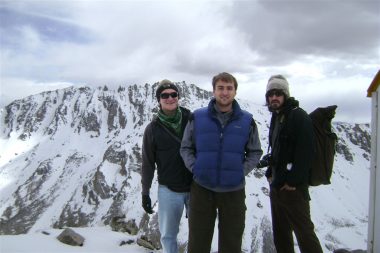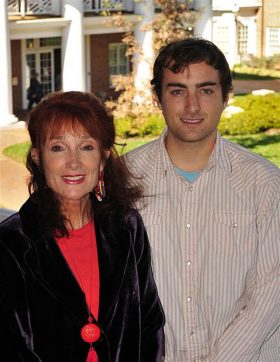To many Americans, healthy living involves counting calories, watching medical segments on the morning news, or drinking diet soda. Health elsewhere on the planet takes a more active approach, according to Elon University senior Ryan Bleam, the third student to be featured in a monthly series of E-net profiles on the inaugural class of Lumen Scholars.
Bleam, a sociology major and anthropology minor from Doylestown, Pa., is researching traditional and alternative medicines throughout the world and how they compare with more Western approaches to health.
“Health is one of the main indicators of culture,” Bleam said. “If we look at how people conceptualize health, you can see how those practices are seen in their lifestyles.”
To Bleam, the differences are striking.
In the West, Bleam said, health is determined “like a machine.” If a person feels well, everything’s good. If health is broken, fix it. In holistic societies, health is something done “on a daily basis.”
Bleam’s research has taken him to some of the most remote places in the world. In 2008, he studied in Australia, analyzing the Aboriginal approach to health. Last summer, he spent three weeks in the Himalayas. He immersed himself into both cultures, conducting and recording interviews with local residents in an effort to understand what health means to them.
In the Himalayas, one elderly man’s approach struck him the most. The best way to stay healthy, the man said, is “when you wake up, walk outside and feel the dew on the grass.”
Bleam’s interest in alternative medicines grew out of personal circumstances. When he was 7, his older brother was diagnosed with leukemia. His brother is now a cancer survivor, and witnessing the effects medicine plays in health left a profound impression on Bleam.
“I’m thankful for our medical system,” he said, “but if we keep going down this highly standardized medical system, we lose our human touch that heals us at the core.”
This lack of a human component, Bleam argued, is one of the biggest areas which differentiates Western approaches to medicine from those abroad. “In the West, getting healthy is about reaction,” he explained. “In holistic societies, the emphasis is on prevention and maintaining your mental and physical well-being.”
The Lumen Prize, awarded for the first time in 2008, provides selected students with a $15,000 scholarship to support and celebrate their academic and creative achievements.
Lumen Scholars work closely with faculty mentors to pursue and complete their projects. Efforts include course work, study abroad, research both on campus and abroad as well as during the regular academic year and summers, internships locally and abroad, program development, and creative productions and performances.
The name for the Lumen Prize comes from Elon’s historic motto, “Numen Lumen,” Latin words for “spiritual light” and “intellectual light.”
Bleam’s research has been under the guidance of anthropology professor Anne Bolin. Since meeting her protégé during his freshman year in an introduction to anthropology class, Bolin knows what separates Bleam from his peers.

“Self-motivation,” she said. “I can only imagine the hurdles of traveling abroad alone, fighting jet lag and tiredness.
“Here’s a mature, sophisticated first-generation college student who, without the prize, wouldn’t have been able to study abroad,” Bolin said. “Given the dedication he’s given to this research, I’d say it was money well spent and the school will be proud of him.”
Bleam is currently preparing to present to the National Conference for Undergraduate Research and the university’s Spring Undergraduate Research Forum.
Bleam has also found time to participate in campus activities such as the Ultimate Frisbee team and e.l.i.t.e (emerging leaders in technology at Elon). His partnership with Bolin has extended into the classroom, where he serves as the professor’s teaching assistant. After graduating he plans to take time off from his studies to work with community organizations.
Bleam says he is learning more every day about the impact of his research after two years of extensive traveling and study.
“Whether an Aboriginal Australian bush medicine man, a holistic health practitioner in suburban United States, or a practitioner of Western biomedicine in the Himalayan Mountains, health is a personal journey that takes many forms, crosses lines of tradition and science, and is deeply embedded in each person’s worldview,” he said.
For more information about the Lumen Prize and other undergraduate research opportunities at Elon University, click on the link to the right of this page under E-Cast.
– Written by Robert Wohner ’11



